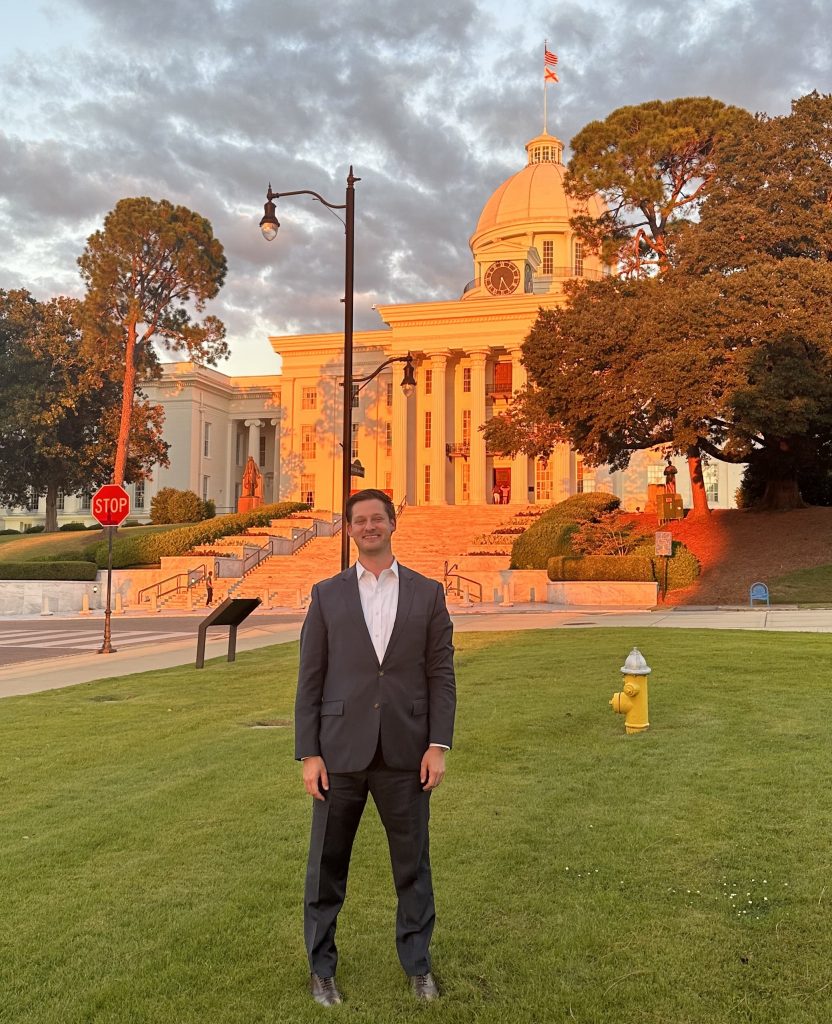Role of a State Legislator

As a member of the Alabama State Legislature, I have three primary roles:
1) Propose and vote on bills that can become laws that affect the entire state. These bills create policies for education, criminal justice, public safety, health care, mental health services, economic development and more. In some circumstances, the legislature votes on “local bills” that only impact some cities/counties.
2) Provide constituent services to try and help guide residents towards resources or solutions.
3) Collaborate on and facilitate initiatives with non-profit organizations, clergy, businesses, and more to address issues in the district and support the community.
Know your Facts about the Legislature:
- There are 140 members of the Alabama legislature. As 1 member, I can use my voice and presence to stand up and fight for what is right.
- It takes a bill passing through at least two committees, receiving a majority of votes and then the governor’s signature to become law. This means that I alone cannot create a law or fix every issue through legislation. It takes a lot of collaboration and persuading the majority to support the ideas and bills I advocate for. I will be a tireless advocate for our community and give my all to trying to pass fair, just, equitable bills.
- As frustrating as that may be at times, our system is set up this way so that no one person or a small group should be able to have too much power.
- We have a system of checks and balances in which we have different levels of elected offices from the city to county to state to national government.
- In my role as a member of the Alabama House of Representatives I do not have a full time staff of my own. This means that I handle many tasks on my own in addition to working a full time job.
- I will share public announcements about economic development and employment (such as a company opening/expanding and hiring, a community college offering a new program, etc.). The role of a legislator though is not to find employment for individuals.
Similarly, I will share announcements about grants and funding opportunities. While I wish I could, I cannot secure funding for every program, non-profit, event, etc. in the district. (See “Resources for the District” page for more details)

AL House District 74
Representative
Phillip Ensler

What A State representative Does
- Writes, proposes, and votes on bills that may become laws for the entire state.
- Reviews and votes on the state budget.
- Serves on committees to address statewide issues such as education, health care, criminal justice, and more.
- Facilitates partnerships and initiatives with businesses, nonprofits, and community members to support the district.
- Receives a very limited amount of education funding to donate specifically to local academic programs.
- Shares updates and engages with residents and the community on how state issues directly impact them.
- Collaborates with city, county, and federal officials to deliver solutions for the district and the state.
What A State representative Does Not Do
- Individually make or change laws or policies.
- Have a full-time staff or team of my own to assist me.
- Receive funding to hire individuals for employment.
- Receive funding to support or sponsor organizations or events in the community.
- Representatives only receive very limited funding specifically for educational/academic programs.
- Have authority over local and neighborhood-based issues such as paving of streets/sidewalks, policing patrols, garbage pick-up, community centers/sports facilities, etc.
- Decide where businesses and employers locate. Representatives can collaborate with others to encourage businesses to open in certain areas and try to pass laws that create more economic opportunities.
Legislature Fast Facts
- There are 140 members of the Alabama Legislature. It is considered a part-time job in which legislators traditionally work another full-time job.
- The legislature spends several months each year (starting March of this year) debating and voting on bills. The rest of the year is spent working with the community to identify issues to address in future bills.
- It takes a bill passing through at least two committees, receiving a majority of votes in the House and Senate, and then the governor’s signature to become law.
- The state legislature is part of a system of checks and balances in which we have different levels of elected offices from the city to county to state to national government.
- No one legislator can fix everything themselves. It takes a lot of collaboration and persuading the majority to support an idea or bill. I will be a tireless advocate for our community and give my all to pass fair, just, and equitable bills. As one member, I can use my voice and presence to stand up and fight for what is right.
